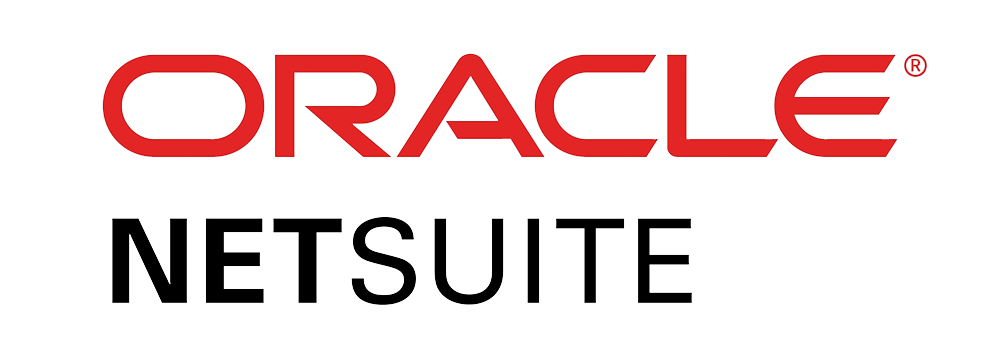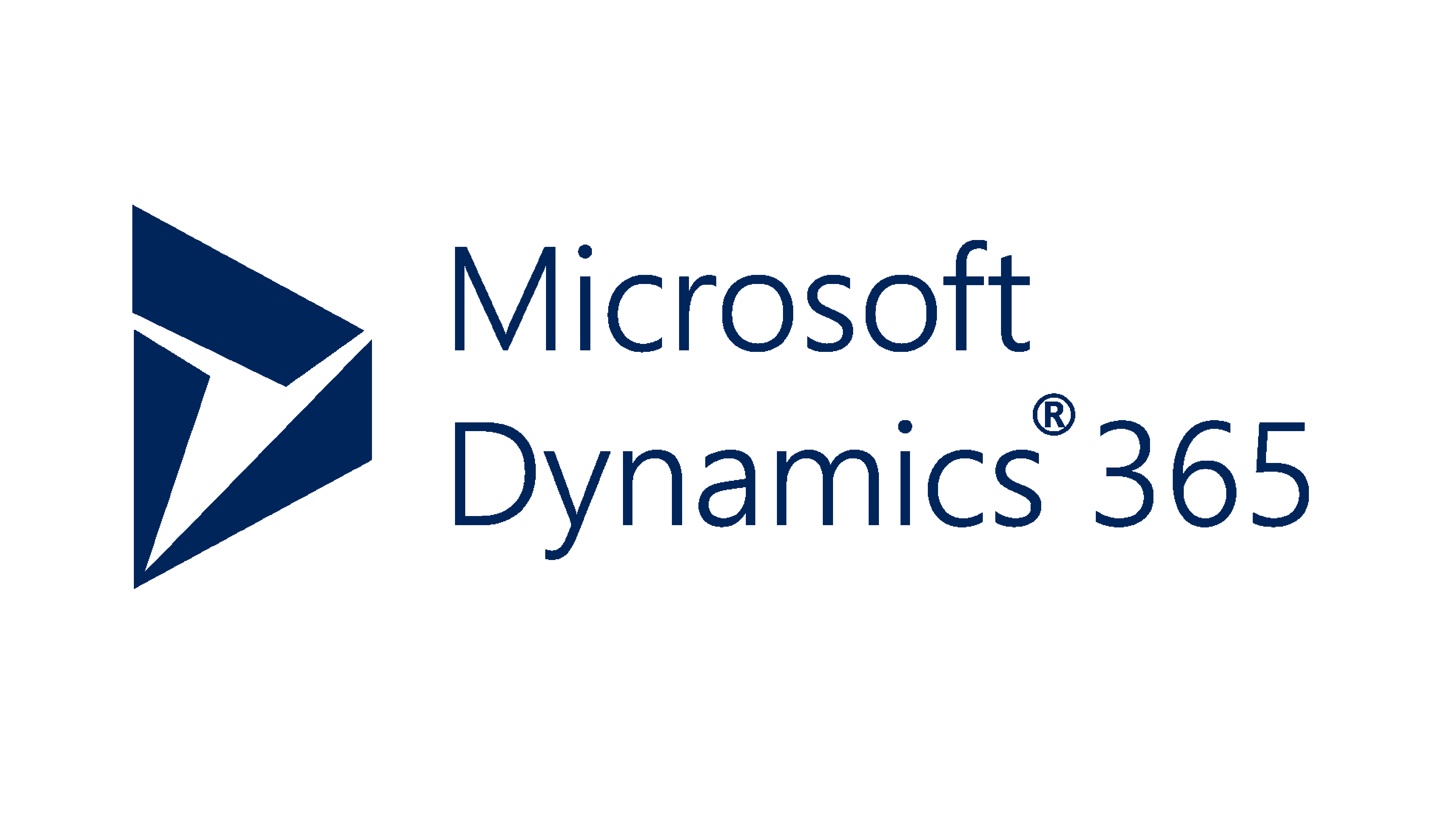ERP Software for Ecommerce
ERP systems for ecommerce businesses allow you to synchronise your sales with the back office giving you operational efficiencies and increased customer satisfaction.
At ERP Research we provide independent advice and analysis for ecommerce ERP systems.
Top 10 ERP Software Report
Get our free in depth comparison of the Top 10 ERP solutions available on the market including Netsuite, Acumatica, Oracle, SAP and more.
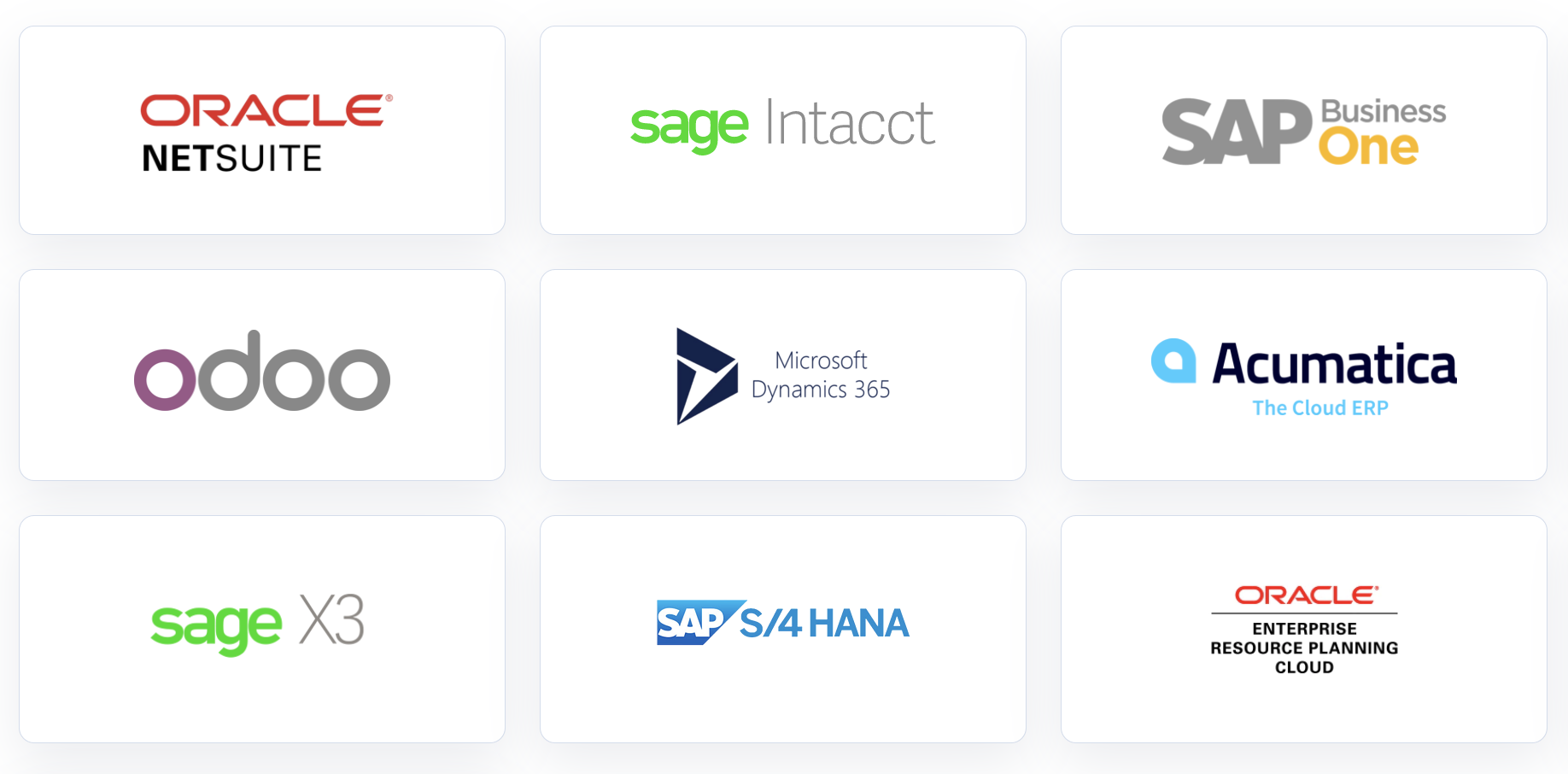
ERP for Ecommerce for Small & Midsized Businesses
ERP software for small ecommerce companies needs to cater for flexibility and growth, whilst keeping costs as low as possible. Which are some of the most popular ERP systems for small and medium sized ecommerce businesses?
Oracle Netsuite
Oracle Netsuite provides pre-built connectors for popular ecommerce platforms including Shopify and Magento allowing for easy integration between the front and back office. Netsuite ERP also covers stock, inventory and supply chain plus finance and integration with 3PL.
SAP Business ByDesign
SAP Business ByDesign is a popular ERP choice for growing ecommerce businesses, particularly those with supply chain intensive processes and assembly or manufacturing needs. With deep localization support, SAP Business ByDesign also caters for international ecommerce activity.
Infor CloudSuite Industrial (Syteline)
Infor CSI ERP is well suited to small and medium sized ecommerce companies, especially those with complex processes including multiple locations and manufacturing and distribution activities with big growth ambitions.
SAP Business One
SAP Business One is a popular ERP choice for growing ecommerce businesses, particularly those with supply chain intensive processes and assembly or manufacturing needs. With deep localization support, SAP Business One also caters for international ecommerce activity.
Odoo
Odoo provides pre-built connectors for popular ecommerce platforms including Shopify and Magento allowing for easy integration between the front and back office. Odoo ERP also covers stock, inventory and supply chain plus finance and integration with 3PL.
Microsoft Business Central
Microsoft Dynamics Business Central is a common choice for ecommerce business due to its wide usage and high degree of flexibility and customization. Business Central for ecommerce is a powerful retail ERP software.
Infor CloudSuite Industrial
Infor CSI, also known as Infor Syteline is an ERP which is a great fit for small and medium sized ecommerce businesses and anyone in the retail or wholesale and distribution space.
Acumatica
Acumatica is a Cloud ERP solution which provides great functionality for online retailers and ecommerce companies. Acumatica has made a name for itself in wholesale and distribution too for companies looking for a robust WMS capability.
Epicor provides standardised integrations with various ecommerce and online retailing platforms including WooCommerce, Shopify, Magento and BigCommerce.
Ecommerce ERP for Growing & Large Enterprises
ERP for e-commerce companies that are already well established brings more functionality and greater flexibility. Below are popular ERP systems for ecommerce companies that are matured:
Microsoft Dynamics 365
Microsoft Dynamics 365 is a popular ERP choice for large scale ecommerce businesses and online retailers. The solution offers flexible capabilities for inventory management, supply chain, finance and sales. With the wider Microsoft portfolio, Dynamics provides easy integration across your business.
Oracle ERP Cloud
Oracle ERP Cloud has been used by some of the fastest growing and most established ecommerce players and online retailers. The ERP platform integrates key processes for ecommerce companies including sales, inventory, fulfilment, logistics and more.
SAP S/4 HANA
SAP S/4 HANA provides huge scalability for growing ecommerce companies spread across multiple entities, brands and geographies. With Hybris, the ecommerce platform now known as SAP Commerce Cloud, SAP provides end to end capabilities for ecommerce companies.
Cloud ERP for Ecommerce
Top Cloud ERP software for e-commerce businesses:
Oracle Netsuite
Oracle Netsuite provides pre-built connectors for popular ecommerce platforms including Shopify and Magento allowing for easy integration between the front and back office. Netsuite ERP also covers stock, inventory and supply chain plus finance and integration with 3PL.
Oracle ERP Cloud
Oracle ERP Cloud has been used by some of the fastest growing and most established ecommerce players and online retailers. The ERP platform integrates key processes for ecommerce companies including sales, inventory, fulfilment, logistics and more.
SAP Business ByDesign
SAP Business ByDesign is a popular ERP choice for growing ecommerce businesses, particularly those with supply chain intensive processes and assembly or manufacturing needs. With deep localization support, SAP Business ByDesign also caters for international ecommerce activity.
Odoo
Odoo provides pre-built connectors for popular ecommerce platforms including Shopify and Magento allowing for easy integration between the front and back office. Odoo ERP also covers stock, inventory and supply chain plus finance and integration with 3PL.
SAP S/4 HANA
SAP S/4 HANA provides huge scalability for growing ecommerce companies spread across multiple entities, brands and geographies. With Hybris, the ecommerce platform now known as SAP Commerce Cloud, SAP provides end to end capabilities for ecommerce companies.
Microsoft Dynamics 365
Microsoft Dynamics 365 is a popular ERP choice for large scale ecommerce businesses and online retailers. The solution offers flexible capabilities for inventory management, supply chain, finance and sales. With the wider Microsoft portfolio, Dynamics provides easy integration across your business.
Netsuite
NetSuite is a comprehensive ecommerce ERP software that can be used for eCommerce businesses to manage their financials, inventory, customer data, and more. Here are some ways NetSuite can be used as an eCommerce ERP:
-
Financial Management: NetSuite can handle all financial aspects of eCommerce, including billing, invoicing, and payment processing. It can also integrate with various payment gateways, allowing eCommerce businesses to accept payments from customers worldwide.
-
Inventory Management: NetSuite can manage inventory levels, automate reordering, and track inventory across multiple locations. It can also integrate with eCommerce platforms, such as Shopify or Magento, to provide real-time updates on inventory levels.
-
Customer Relationship Management (CRM): NetSuite can store customer information and buying history, enabling eCommerce businesses to offer personalized experiences to their customers. It can also help automate marketing campaigns and customer service interactions.
-
Order Management: NetSuite can manage the entire order process, from order placement to fulfillment, tracking, and returns. It can also provide real-time updates on order status and inventory levels.
-
Analytics and Reporting: NetSuite can provide eCommerce businesses with detailed analytics and reports, enabling them to make informed decisions about their operations, sales, and marketing strategies.
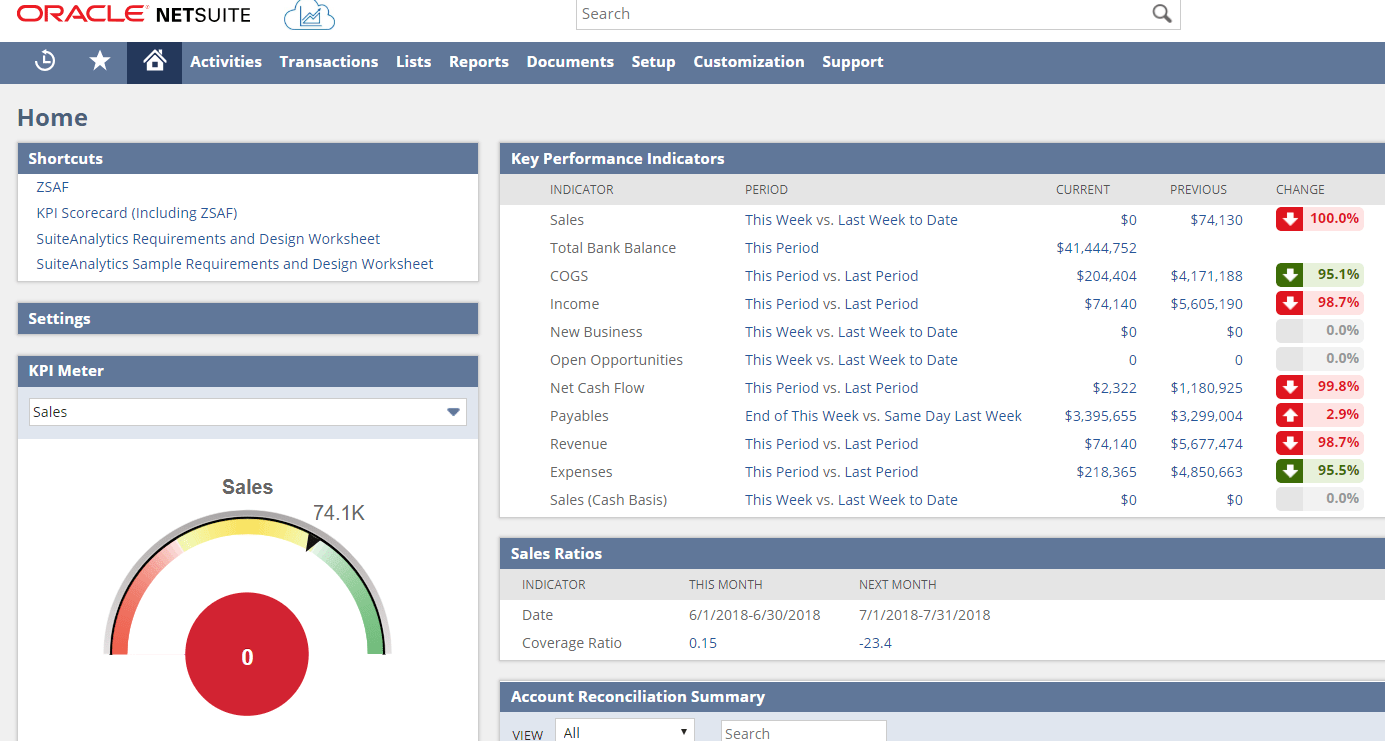
Acumatica
Acumatica is a cloud-based ecommerce enterprise resource planning (ERP) solution that can be used to manage various aspects of an ecommerce business, including inventory management, order processing, shipping and logistics, and financial management. Here are some ways in which Acumatica can be used in ecommerce ERP:
-
Inventory management: Acumatica's inventory management module enables ecommerce businesses to track their inventory levels in real-time, automate purchase orders, and manage stock across multiple warehouses. With this module, businesses can avoid stockouts, reduce overstocking, and improve their order fulfillment process.
-
Order processing: Acumatica's order management module allows ecommerce businesses to automate their order processing workflows, from order entry to shipment and invoicing. This module integrates with popular ecommerce platforms like Shopify and Magento, enabling businesses to manage their orders and customers from a single platform.
-
Shipping and logistics: Acumatica's shipping module enables businesses to streamline their shipping and logistics processes by integrating with popular carriers like UPS, FedEx, and USPS. This module also provides real-time tracking information to customers, improving their experience and reducing customer inquiries.
-
Financial management: Acumatica's financial management module provides ecommerce businesses with a complete view of their financial health, including cash flow, revenue, expenses, and profit margins. With this module, businesses can automate their accounting processes, generate financial reports, and manage their taxes.
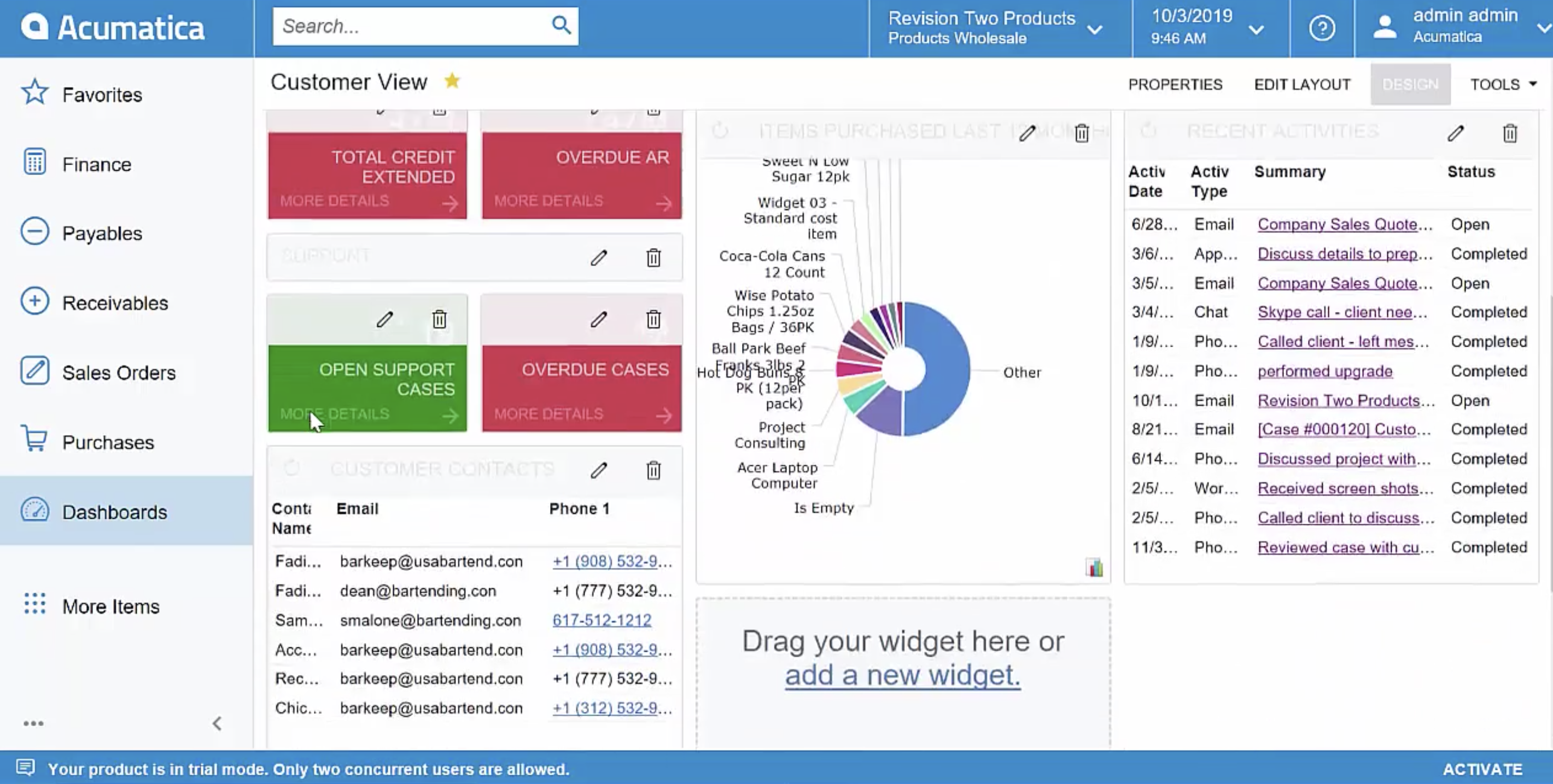
Microsoft Dynamics 365 ERP (Enterprise Resource Planning) is a powerful ecommerce software solution that can be used by an ecommerce business to manage and optimize their business operations. Here are some ways in which Dynamics 365 can be used by an ecommerce business:
-
Order Management: With Dynamics 365, an ecommerce business can manage orders, payments, and shipments. It allows businesses to track and manage orders from multiple sales channels in one place, including online marketplaces, online stores, and social media platforms.
-
Inventory Management: Dynamics 365 can help an ecommerce business manage their inventory in real-time. The software can automatically update inventory levels as sales are made and orders are fulfilled. This can help the business avoid stockouts and overstocking, which can impact their bottom line.
-
Financial Management: Dynamics 365 can help an ecommerce business manage their finances, including accounts payable and receivable, cash flow, and financial reporting. The software can provide insights into financial performance, which can help the business make informed decisions about pricing, promotions, and investments.
-
Customer Management: Dynamics 365 can help an ecommerce business manage their customer relationships by providing a 360-degree view of each customer's interaction with the business. The software can track customer orders, preferences, and feedback, which can help the business provide personalized experiences and improve customer satisfaction.
-
Marketing Management: Dynamics 365 can help an ecommerce business manage their marketing campaigns, including email marketing, social media marketing, and content marketing. The software can track the effectiveness of each campaign and provide insights into customer behavior, which can help the business optimize their marketing strategies.
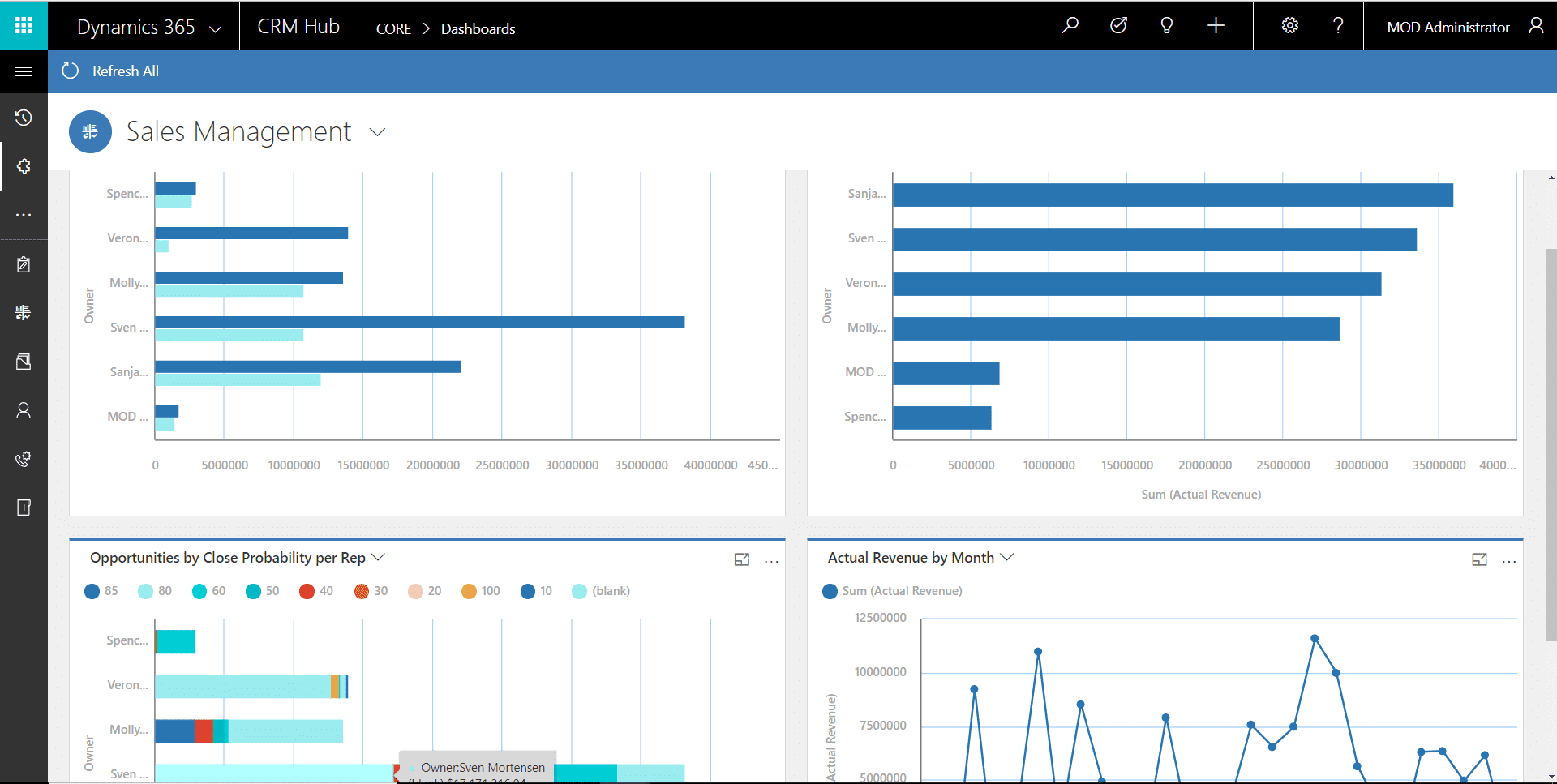
SAP Business One
As an ecommerce company, you need a robust system to manage your inventory, sales, and customer data. SAP Business One is the perfect ERP solution for ecommerce businesses looking to grow and streamline their operations.
With SAP Business One, you can manage your inventory levels, track sales orders, and manage customer data in one central location. This means you can easily access the data you need to make informed decisions and improve your ecommerce operations. You can also automate repetitive tasks, like order processing and shipping, so you can focus on growing your business.
Another benefit of SAP Business One for ecommerce companies is the ability to integrate with popular ecommerce platforms like Shopify and Magento. This means you can easily import your product information, orders, and customer data into SAP Business One, saving you time and reducing errors.
In conclusion, SAP Business One can help your ecommerce business grow and streamline your operations. With its robust inventory management, sales tracking, and customer data capabilities, you can make informed decisions and focus on growing your business.
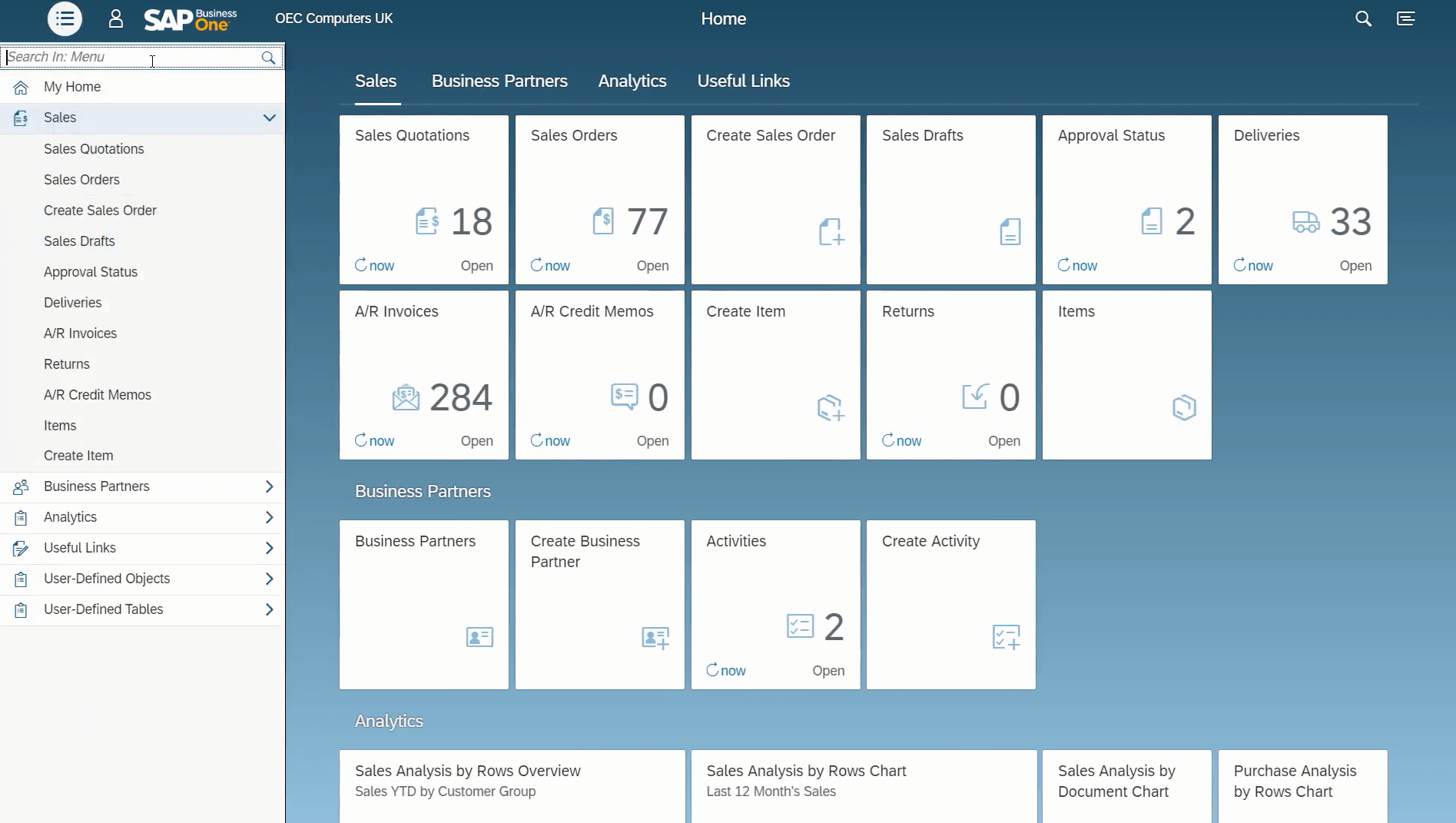
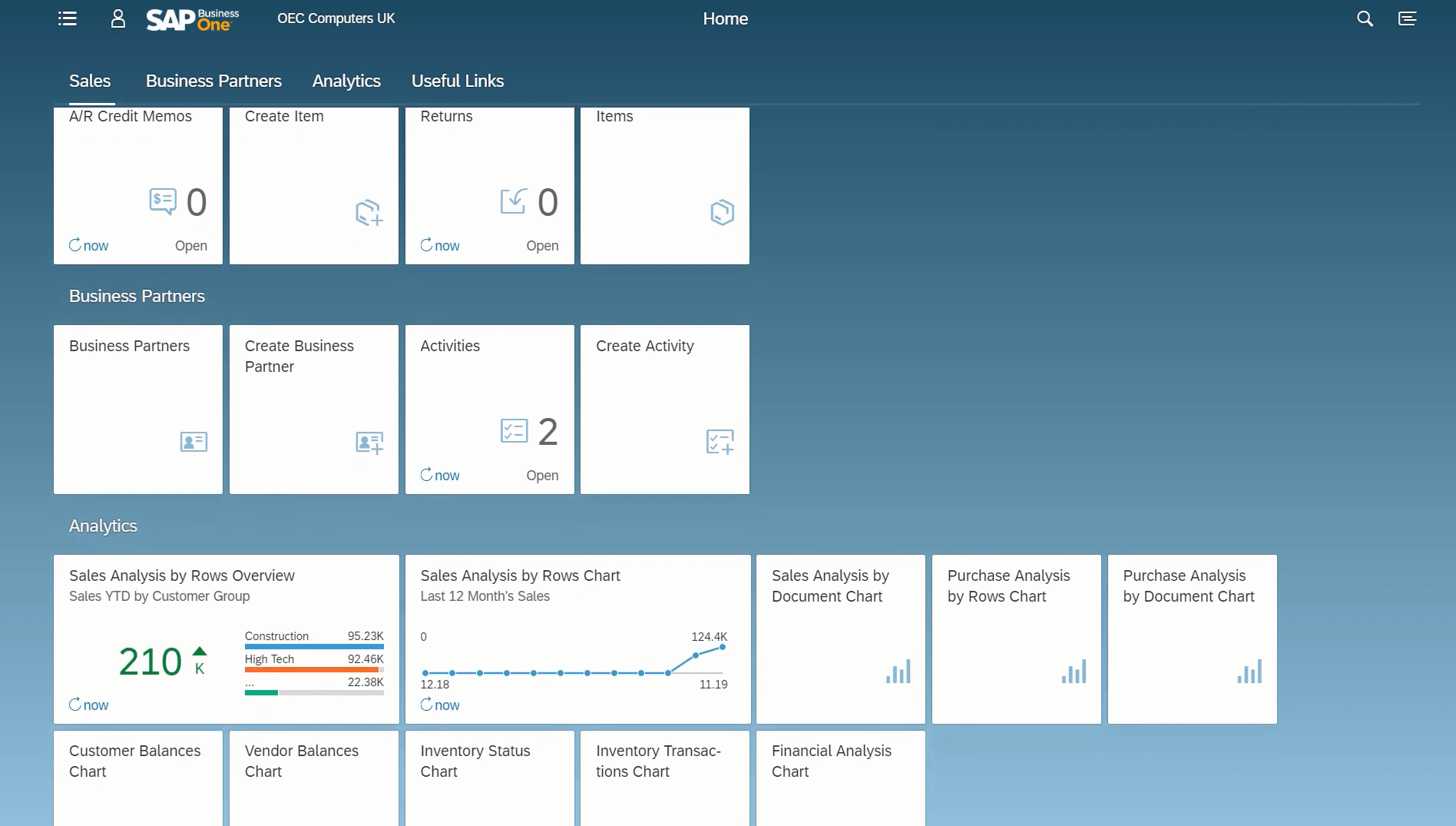
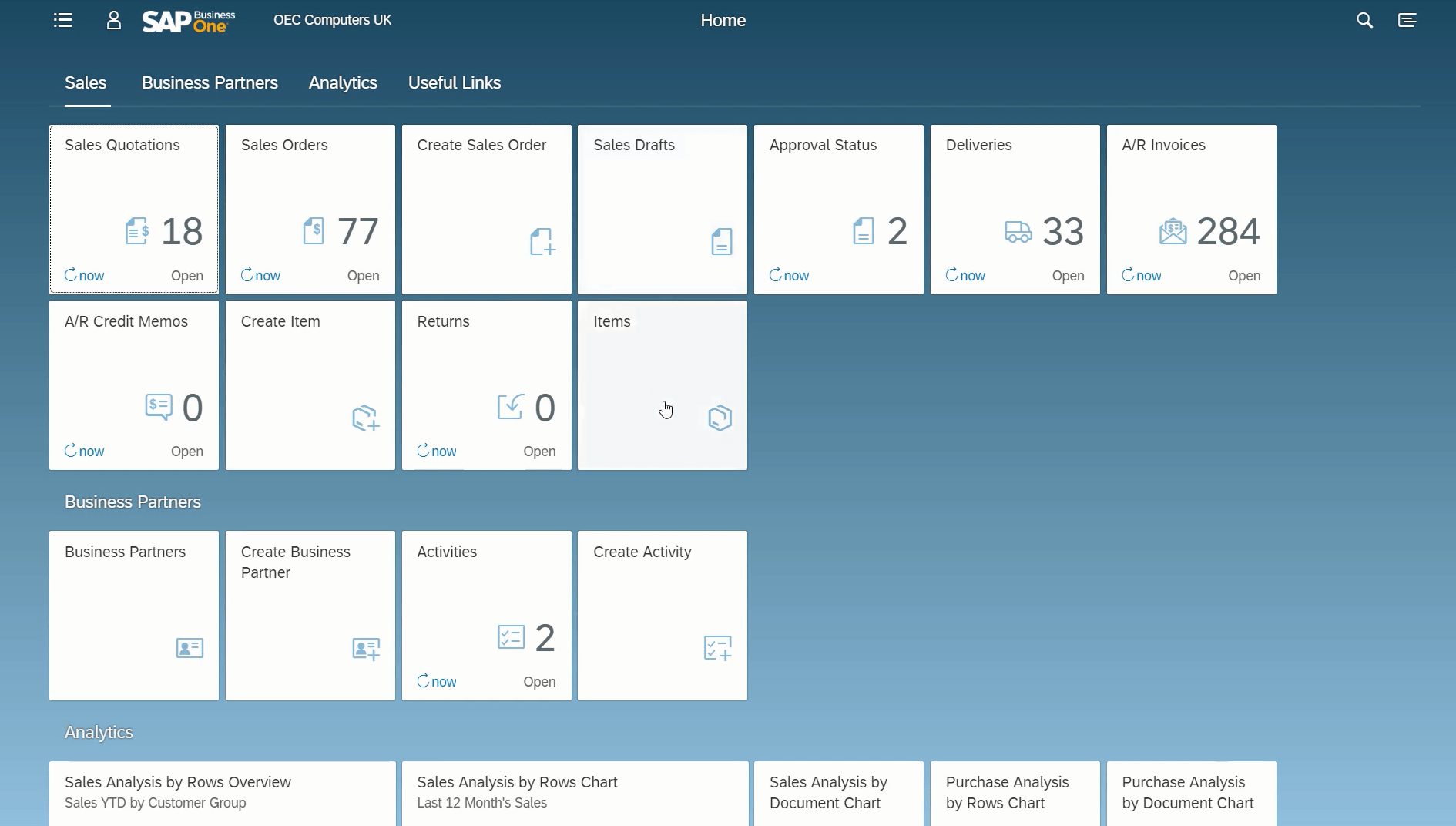
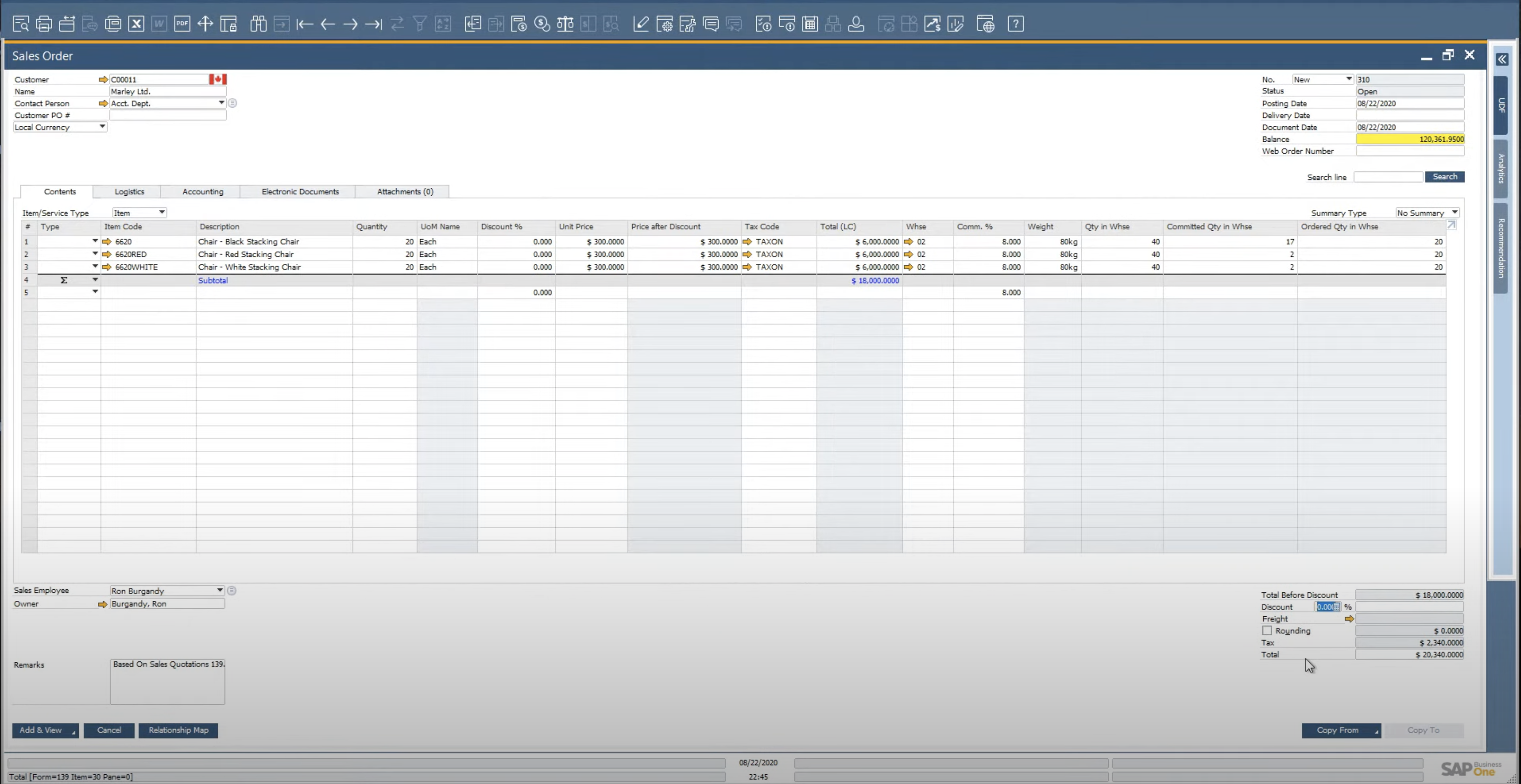
Epicor is an enterprise resource planning (ERP) software that can be used by ecommerce businesses to streamline and automate their operations. Here are some ways in which Epicor can be used by ecommerce businesses:
-
Order Management: Epicor can help ecommerce businesses manage their orders efficiently by providing a centralized system for tracking, processing, and fulfilling orders. It can also automate order processing and inventory management, which can reduce errors and improve customer satisfaction.
-
Inventory Management: Ecommerce businesses need to manage their inventory levels to ensure that they have enough stock to meet customer demand. Epicor can help by providing real-time visibility into inventory levels, and by automating inventory management processes such as stock replenishment and order fulfillment.
-
Customer Relationship Management (CRM): Ecommerce businesses need to maintain good relationships with their customers to retain them and drive repeat sales. Epicor can help by providing a CRM module that enables businesses to track customer interactions, analyze customer behavior, and personalize marketing campaigns to drive customer loyalty.
-
Accounting and Finance: Ecommerce businesses need to manage their finances and ensure that they are operating profitably. Epicor can help by providing a robust accounting and finance module that enables businesses to manage their financials, generate financial reports, and track expenses.
-
Supply Chain Management: Ecommerce businesses rely on suppliers and logistics partners to deliver their products to customers. Epicor can help by providing a supply chain management module that enables businesses to manage their suppliers, track inventory levels, and optimize logistics operations.
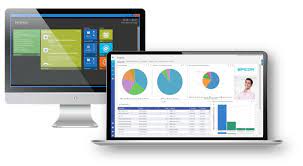
Ecommerce ERP FAQ
Key Features of ERP for Ecommerce
When diving into the world of e-commerce, businesses often find themselves juggling multiple tools and platforms. An e-commerce ERP (Enterprise Resource Planning) system is designed to integrate and streamline various business processes into a single unified system. If you're searching for an 'e-commerce ERP', understanding its features is crucial. Here's a SEO-optimized breakdown of the essential features:
-
Unified Data Management
- Centralize customer, product, and order data.
- Ensure real-time data accuracy and consistency across platforms.
-
Inventory Management
- Track stock levels in real-time.
- Automate reorder processes and reduce stockouts or overstock situations.
-
Order Processing & Fulfillment
- Automate order-to-cash processes.
- Integrate with shipping carriers and provide tracking details.
-
Multi-channel Integration
- Seamlessly connect with various e-commerce platforms, marketplaces, and POS systems.
- Synchronize inventory, orders, and customer data across channels.
-
Customer Relationship Management (CRM)
- Maintain detailed customer profiles.
- Segment customers for targeted marketing campaigns.
-
Financial Management
- Automate invoicing, billing, and accounting processes.
- Integrate with popular payment gateways and banks.
-
Supply Chain & Vendor Management
- Streamline procurement processes.
- Monitor vendor performance and manage supplier relationships.
-
Reporting & Analytics
- Gain insights into sales, inventory, and customer behavior.
- Make data-driven decisions with customizable reports.
-
E-commerce Platform Integration
- Connect with popular platforms like Shopify, Magento, WooCommerce, and more.
- Ensure smooth data flow between your ERP and e-commerce storefront.
-
Mobile Access & Responsiveness
- Access your ERP system on-the-go.
- Ensure compatibility across devices for uninterrupted business operations.
- Customization & Scalability
- Tailor the ERP to fit your unique e-commerce needs.
- Scale up as your business grows without changing systems.
- Security & Compliance
- Protect sensitive business and customer data.
- Stay compliant with industry regulations and standards.
- Support & Training
- Receive dedicated support for system implementation and troubleshooting.
- Access training resources to maximize ERP utilization.
In conclusion, an e-commerce ERP is a powerhouse tool that can transform the way you manage your online business. By centralizing and automating various processes, it not only saves time but also reduces errors, ensuring a smooth and efficient operation. If "ecommerce ERP" is on your radar, ensure the solution you choose offers these essential features for optimal performance.
What is Ecommerce ERP?
Ecommerce ERP is enterprise resource planning software which enables e-commerce companies to centralise their business processes into one ERP system. ERP software for e-commerce typically includes modules for sales, marketing, inventory management, distribution, third party logistics, service and more.
By centralising all business processes into one ERP system, e-commerce businesses can create new efficiencies and improve customer satisfaction.
Which ERP is best for ecommerce?
Some of the best ERP software for e-commerce companies includes SAP Business One, Oracle Netsuite, Infor, Microsoft Dynamics 365, Odoo and more.
How much does ERP for ecommerce cost?
The cost of an e-commerce ERP (Enterprise Resource Planning) system can vary widely based on several factors. Here's a breakdown of the factors influencing the cost and some general pricing guidelines:
Factors Influencing E-commerce ERP Cost:
-
Size and Complexity of Your Business: Larger businesses with complex operations often require more advanced ERP features, leading to higher costs.
-
Deployment Model:
- On-Premise: This involves purchasing the software license and hosting it on your servers. Initial costs can be high, but there are no recurring monthly fees, except for maintenance and updates.
- Cloud-Based (SaaS): This is a subscription-based model where you pay a monthly or yearly fee. Initial costs are lower, but you'll have ongoing expenses.
-
Customization and Integration: Tailoring the ERP to fit your specific needs or integrating it with other systems can add to the cost.
-
Number of Users: Some ERP systems charge based on the number of users who will access the system.
-
Modules and Features: The more modules (like CRM, inventory management, financial accounting) and advanced features you need, the higher the cost.
-
Training and Support: Some vendors charge extra for training your staff and for ongoing support.
-
Implementation and Setup: Initial setup, data migration, and implementation can have associated costs.
-
Updates and Upgrades: Future software updates or upgrades can come with additional charges.
-
Additional Hardware: If you opt for an on-premise solution, you might need to invest in servers or other hardware.
General Pricing Guidelines:
-
Small Businesses: For basic cloud-based ERP solutions tailored for small businesses, costs can range from $10 to $100 per user per month.
-
Mid-sized Businesses: For more comprehensive solutions with a broader range of features, costs can range from $100 to $1,000 per user per month.
-
Large Enterprises: For large enterprises requiring extensive customization, advanced features, and multiple integrations, costs can start from $1,000 per user per month and can go much higher. On-premise solutions for large enterprises can have initial costs running into several hundred thousand dollars or even millions, depending on the complexity.
-
One-time Implementation Fees: Depending on the vendor and the complexity of your business processes, implementation fees can range from a few thousand dollars to several hundred thousand dollars.
It's essential to note that these are general figures, and actual costs can vary based on the vendor, region, and specific business requirements. Always request detailed quotes from multiple vendors and ensure you understand all potential costs before making a decision.
Does ERP integrate with ecommerce software?
Yes, ERP (Enterprise Resource Planning) systems often integrate with e-commerce platforms. This integration is crucial for businesses that want to streamline their operations and ensure consistency across various channels. Here's why and how this integration is typically achieved:
Benefits of ERP and E-commerce Integration:
-
Unified Data: Integration ensures that data from the e-commerce platform (like orders, customer details, and product information) is automatically synced with the ERP system. This eliminates manual data entry and reduces errors.
-
Real-time Inventory Management: As orders are placed on the e-commerce platform, inventory levels in the ERP system are updated in real-time, preventing stockouts or overselling.
-
Automated Order Processing: Once an order is placed online, details are sent to the ERP for processing, which can then handle tasks like invoicing, shipping, and tracking.
-
Improved Customer Experience: With integrated systems, customers can receive real-time updates about their orders, access detailed order history, and get accurate product availability information.
-
Financial Management: Sales data from the e-commerce platform can be directly fed into the ERP's financial module, simplifying tasks like revenue tracking, taxation, and financial reporting.
-
Centralized Data Management: Integration allows businesses to have a single source of truth for all their data, making it easier to analyze and make informed decisions.
How ERP Systems Integrate with E-commerce Platforms:
-
Direct Integration: Some ERP systems come with built-in connectors or modules designed to link directly with popular e-commerce platforms like Shopify, Magento, WooCommerce, and BigCommerce.
-
Middleware: Middleware solutions act as a bridge between the ERP and e-commerce platform, translating and transferring data between the two systems.
-
Custom API Integration: For businesses with unique needs or those using less common platforms, custom integration using APIs (Application Programming Interfaces) might be necessary. This approach requires more development work but offers a tailored solution.
-
Third-party Integration Tools: There are tools and services, like Zapier or Jitterbit, that specialize in connecting different software solutions, including ERP and e-commerce platforms.
-
ERP Vendors & Partners: Many ERP vendors have partnerships with e-commerce platform providers or third-party developers who offer integration solutions.
What is the best ERP for Shopify?
The best ERP software for Shopify users could include many popular ERP solutions such as Odoo, Netsuite, SAP Business One, SAP Business ByDesign, Infor CloudSuite Industrial (Syteline) and more.
What is the best ERP for WooCommerce?
WooCommerce often need ERP software to keep pace with customer needs and to streamline their back-office processes. Some of the top ERP choices for WooCommerce users include Netsuite, Sage Intacct, SAP B1, SAP Business ByDesign and Odoo.
What is the best ERP for Magento?
Magento is one of the most popular e-commerce solutions on the market, now owned by software giant, Adobe. Magento e-commerce users have a whole host of ERP solutions to choose from due to the solutions popularity. At ERP Research, we have found that Magento users often use ERP software such as Netsuite, Microsoft Dynamics, SAP, Infor and Oracle, depending on their size and complexity.
How do you choose an ecommerce ERP?
- Choosing an e-commerce ERP (Enterprise Resource Planning) system is a significant decision that can impact the efficiency, scalability, and profitability of your online business. Here's a step-by-step guide to help you make an informed choice:
-
Understand Your Needs
- Business Size & Complexity: Different ERPs cater to different business sizes, from startups to large enterprises.
- Functional Requirements: List out the specific functionalities you need, such as inventory management, CRM, financial accounting, etc.
-
Integration Capabilities
- Ensure the ERP can seamlessly integrate with your existing e-commerce platform, payment gateways, shipping providers, and other tools you use.
- Check if the ERP supports multi-channel selling if you're selling on multiple platforms.
-
Scalability
- The ERP should be able to grow with your business. It should handle increased data, transactions, and users without significant additional costs or complexities.
-
User Experience
- Opt for an ERP with an intuitive interface. This reduces the learning curve and increases user adoption.
- Check if the ERP offers mobile access for on-the-go management.
-
Customization & Flexibility
- Determine if the ERP can be tailored to fit your unique business processes.
- Check if it allows third-party applications or plugins to enhance its functionality.
-
Cost Considerations
- Understand the total cost of ownership, including licensing fees, implementation costs, training, and potential future costs.
- Consider both upfront and recurring costs.
-
Security & Compliance
- Ensure the ERP adheres to industry standards for data security and privacy.
- If you're in a regulated industry, verify that the ERP helps you maintain compliance.
-
Support & Training
- Opt for providers that offer robust customer support, both during and post-implementation.
- Check if they provide training resources, webinars, or tutorials to help your team get acquainted with the system.
-
Vendor Reputation & Reviews
- Research the vendor's reputation in the market. Look for customer testimonials, case studies, and third-party reviews.
- Consider the longevity and financial stability of the vendor.
-
Implementation Time
- Understand how long it will take to get the ERP up and running. A prolonged implementation can disrupt business operations.
- Demo & Trial
- Before finalizing, request a demo or a trial version to get a hands-on feel of the ERP.
- This helps in understanding if the system aligns with your business processes and user expectations.
- Feedback from Peers
- Connect with other e-commerce businesses or industry peers who've implemented ERPs. Their insights can be invaluable.
- Future-Proofing
- Consider the roadmap of the ERP. It's beneficial if the vendor has a history of regular updates, keeping up with industry trends and technological advancements.
Ecommerce ERP Modules & Top Features
ERP systems for online retailers should allow you to reap many benefits, including unification of your front and back office processes:
Accounting and Financials
Ecommerce ERP enables you to streamline your accounting and financials process by integrating accounting with sales, purchasing and more.
Inventory Management
Monitor stock levels in real time across multiple warehouses and virtual sites. Manage bin locations and use multiple stock valuation models.
Purchasing
Manage mulitple vendors and suppliers in ecommerce ERP to streamline and control your spend processes. Integrate with financials for real time profit analysis.
Sales & Order Management
Integrate your ERP software directly into your chosen ecommerce platform such as Shopify or Magento and synchronise sales order data through to your back end.
Customer Service
Ensure your customers are satisfied by integrating your data across sales, stock, third party logistics and ensure seamless returns processes to drive customer retention in Ecommerce ERP.
Production
For online retailers and ecommerce businesses that need to run manufacturing processes in ERP, integrating these functions with sales and finance can drive operational efficiencies.
Asset Management
Monitor and analyse assets across your ecommerce business in real time with modern ERP systems and software designed for online retailers.
Reporting and dashboards
Quickly visualise data across your ecommerce business in ERP solutions for online retailers. Analyse sales, returns, supply chain and more.
Customisation
Flexible ERP software that's built on an open and extensible foundation, allowing you to choose the features that suit your business needs.
Mobility
Access your ERP data at any time so you're more available to customers and take advantage of unexpected opportunities as they surface.
Updates and maintenance
Backed by the consistency of market-leading vendors, ERP software regularly updates to ensure an optimal user experience.
Versatile deployments
Connects customers, partners, and employees through real-time digital relationships to improve the way you do business.
Start your ERP journey with ERP Research
-
Build An ERP Business Case 2-3 weeksA solid business case is a foundation you need if you are going to persuade your organization to consider enterprise resource planning (ERP) implementation. Download Business Case Template
-
Compare ERP Vendors 2-3 weeksIt’s critical to understand which ERP vendor is right for your business. Before you decide on the vendor for your company, take a look at our solution pages to find out which vendor would be best. Compare ERP Vendors
-
Get Pricing Estimates 1-2 weeksOur exclusive process removes all the salesmen from the equation and gets you real pricing estimates from every qualified vendor. Contact Us For Pricing
-
Organize A Solution Demo 1-2 weeksDuring a demo, you will learn about how large corporations are making use of ERP software and how they are improving their business practices. Book A Demo
-
Build ERP Requirements 3-4 weeksIf you're looking to buy an Enterprise Resource Planning (ERP) system or upgrade your internal systems you will need a clear definition of all the functions, features and capabilities that you expect. You can approach this challenge by building what's called an ERP requirements document. Download ERP Requirements Template
-
Shortlist 4-8 Vendors 1 weekOne of the most important phases in the ERP project lifecycle is selecting the right software vendor. Ideally, you should shortlist 4-8 vendors - based on their credentials and your requirements. Contact Us To Shortlist Vendors
Supply Chain Management ERP
In this article, we'll discuss the benefits of supply chain management systems within organizations and how your organization can use a supply chain management ERP to streamline the transfer of goods around the world.
ERP Requirements Gathering (RFI, RFP) Template Excel
Start your ERP evaluation process with our RFI & RFP Excel template for the engineering industry.
ERP Project Budget Calculator Template
Calculate the costs of your ERP project with our prebuilt budget calculator.












